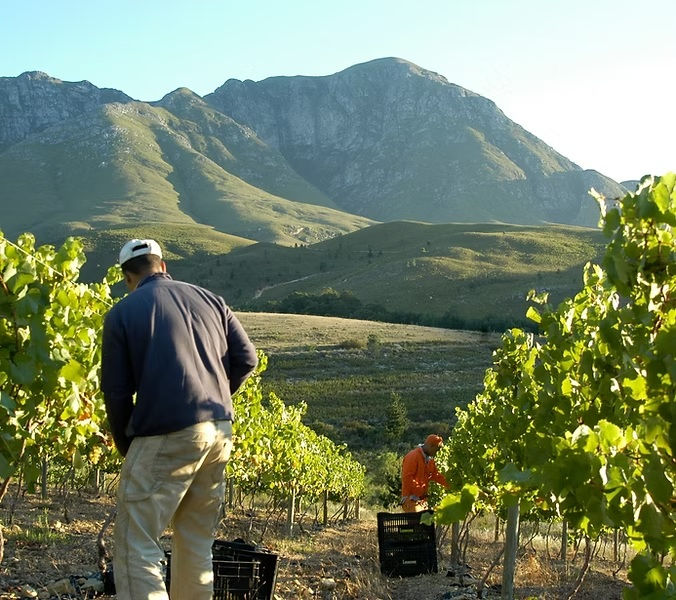Part 2 - a love letter to chardonnay.
- James Pymont
- Jun 10
- 4 min read

Having covered Chardonnay’s spiritual home it would be amis to not mention the other regions and countries where Chardonnay excels. Australia (Infact i am due to attend a tasting tomorrow of the countires best chardonnay, more of on that to follow) but what about the Jura, Champagne! (Worth a whole article on its own) Parts of Italy, South Africa, California, Oregon, New Zealand, South America. So here in brief is a boiled down synopis of what you might expect to find from the most notable regions. apologies to those that have missed out.
California: Redefining Itself
California Chardonnay has undergone a quiet revolution. The buttery, heavily oaked style of the 1990s has given way to something more balanced — in many cases, profoundly terroir-driven.
Sonoma Coast: Cold Air, Long Hang Times
Producers like Ceritas, Littorai, and Kistler (in the Occidental vineyards) are sourcing from cool, often fog-shrouded coastal sites. Vineyards like Charles Heintz, Camp Meeting Ridge, and Thieriotsit at elevation or near the Pacific, where Chardonnay ripens slowly, preserving acidity.
• Ceritas emphasizes restraint: no new oak, early picking, and native fermentations.
• Littorai marries structure and elegance, with wines that are transparent and age-worthy.
• Kistler (in its more recent incarnations) is dialing back the oak and alcohol, with a focus on expressing vineyard character.
Santa Barbara / Sta. Rita Hills: Solar Power with Tension
Further south, producers like Au Bon Climat Tyler, Sandhi, and Diatom (by Greg Brewer are working with wind-cooled vineyards like Sanford & Benedict and Bentrock. These sites, though sun-drenched, retain bright acidity and a briny, coastal edge. Wines can show more orchard fruit and saline notes than in Sonoma.
• Brewer-Clifton (under Greg Brewer) leans more toward a riper, barrel-aged style.
• Sandhi (Raj Parr and Sashi Moorman) uses neutral oak, minimal intervention, and organic farming to showcase site-specific tension.
⸻
South Africa: Altitude and Ocean
South Africa’s best Chardonnays are emerging from cooler regions like Elgin, Hemel-en-Aarde Ridge, and Kaaimansgat — sites influenced either by altitude or by the cooling Benguela Current off the Atlantic.
Hamilton Russell (Hemel-en-Aarde)
One of the pioneers, producing Chardonnays with notable minerality, restrained fruit, and a saline finish. Clay-rich soils and cool conditions lead to wines of real structure.
Crystallum & Storm Wines
Newer producers working with elevation and precision. The wines show lemon oil, firm acid, and a kind of smoky, flinty edge that recalls Burgundy — but with a wild, untamed energy.
Kaaimansgat (Elandskloof Valley)
This high-altitude vineyard (700m+) has become a go-to for Chardonnay that balances ripe fruit with bracing freshness. Radford Dale, Thorne & Daughters, and Restless River all make compelling versions.
Elgin
This once baron high altitude and cool region in the foot hills of Cape fold belt mountain range, has been firmly put on the map by Samantha O'keefe of Lismore who's wines are now some of the best in the country. It's not just her chardonnay's that are worth trying but i have to admit they are my favorite.
⸻
Argentina: The Rise of High-Altitude Chardonnay
In Mendoza’s Uco Valley, Chardonnay has found a new identity. Vineyards like Gualtallary and Altamira sit at 1200–1500 meters, where diurnal shifts lock in acidity and volcanic, calcareous soils provide serious mineral structure.
Catena Zapata (Adrianna Vineyard)
The White Stones and White Bones Chardonnays from Adrianna Vineyard are game-changers: tense, focused, and deeply site-specific. They undergo wild fermentation, often in concrete eggs or large, neutral barrels. These are structured, age-worthy wines that compete on a global level.
Zuccardi
Another name to watch in the high-altitude category. Their Fósil Chardonnay is a laser beam of citrus, crushed rock, and white flowers.
⸻
Chile: Coastal Freshness
Chile’s Casablanca Valley and Limarí Valley are emerging hotspots for Chardonnay. The cool, fog-laced mornings and mineral-rich soils (especially in Limarí) allow for taut, ageable styles.
Tabalí, Ventisquero, and Matetic
These producers are working with limestone and clay soils, often close to the ocean. The resulting wines are lean, saline, and subtly structured — not unlike Chablis in some vintages.
⸻
Australia: From Power to Precision
Australia’s Chardonnay renaissance is happening in Margaret River, Yarra Valley, and Tasmania, where cool climates and evolving winemaking have created wines of finesse and clarity.
Margaret River: Leeuwin Estate, Cullen
Wines from here are structured, citrus-driven, and beautifully integrated. Leeuwin Estate Art Series Chardonnay is iconic: intense, age-worthy, and complex. Cullen, with its biodynamic approach, makes detailed, elegant wines that show restraint and character.
Yarra Valley: Oakridge, Mac Forbes
Yarra wines often emphasize high acid, low alcohol, and fine structure. Oakridge in particular has been a benchmark for site-driven, mineral Chardonnays.
New Zealand
You can't disscuss new world Chardonnay without mentioning Kumeu River, famous for there award winning and critically aclaimed single vineyard wines, strikingly unique yet at home amongst some of the worlds gretest chardonnay based wines. Felton Road are perhaps more renound for Pinot but also make great chardonnay and of course there are many more.
⸻
Final Thoughts: Chardonnay as a Lens
What makes Chardonnay so enduring isn’t just its flavor profile — it’s the way it reveals place. Its a grape that can keep you entertained and guessing for a lifetime. Whether it’s the crushed oyster shell of Chablis, the crushed quartz of Gualtallary, or the eucalyptus-edged vineyards of Margaret River, Chardonnay translates geology into glass. And then there’s the winemaker — choosing to lean into reduction or richness, lees or no lees, stainless or old oak. Every decision shapes the wine. Every decision matters. So next time your in a restaurant or a wine shop try something new because everyday is a school day.



Comments